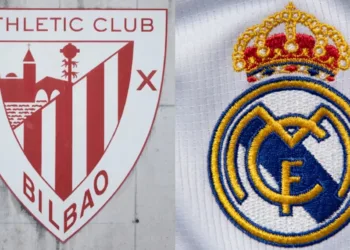Novak Djokovic’s recent declaration about retiring at the 2028 Los Angeles Olympics with the Serbian flag raised eyebrows—particularly Andy Roddick’s. The former US Open champion sees the statement as more than a career timeline; it’s a masterful political move amid mounting tensions with Serbia’s government.
Table of Contents
Novak Djokovic Retirement Declaration
After claiming his 101st career title at the Hellenic Championship in Athens, Djokovic hinted at his endgame. “Since I’ve achieved absolutely all possible goals, I said about the 2028 Olympics because I wanted to play for so many more years. So maybe ending up at the Olympic Games with the Serbian flag, that would be nice,” the 24-time Grand Slam champion stated.

Roddick wasn’t buying it—at least not the timeline. “I don’t think so. I hope I’m wrong,” the 2003 US Open winner said on his “Served” podcast, questioning whether the 38-year-old would realistically maintain form until age 41.
Djokovic’s Current Situation: Overview
| Category | Details |
|---|---|
| Current Residence | Athens, Greece (since September 2025) |
| Career Titles | 101 ATP singles titles |
| Age/Retirement Target | 38 years old / 2028 LA Olympics |
| Political Status | Labeled “false patriot” by Serbian media |
| Greece Move Reason | Support for student protests against Serbian government |
| 2025 Grand Slam Record | 0 titles, 4 semifinal exits |
The Political Genius Behind the Words
What Roddick recognized was the calculated brilliance of Djokovic’s statement. “Him saying ‘I want to retire at the 2028 Olympics with a Serbian flag in my hand’ was the perfect way to address many, many issues that are going on right now,” he explained.
The statement accomplished multiple objectives simultaneously. It deflected retirement questions while declaring unwavering loyalty to Serbia—crucial given the political firestorm engulfing the tennis icon back home.
“This was a really smart way to say my heart is with Serbia and I want to retire with the Serbian flag in my hand,” Roddick added, with tennis journalist Jon Wertheim calling it a “brilliant bit of political strategy.”
The Political Storm in Serbia
Djokovic’s relocation to Greece wasn’t just about Mediterranean weather and lifestyle. After publicly supporting student-led protests following the tragic Novi Sad train station collapse that killed 16 people, the tennis legend faced unprecedented backlash from pro-government Serbian media.
He posted on social media in December 2024: “As someone who deeply believes in the power of young people and their desire for a better future, I believe it’s important that their voices are heard.”
That message—along with wearing “Students are Champions” apparel and dedicating victories to protesters—made him a target. State media branded him a “false patriot” and accused him of supporting foreign-backed revolution.
Greece as Sanctuary
By September 2025, Djokovic had officially relocated his family to Athens through Greece’s Golden Visa program. Speaking to CNN Greece, he emphasized cultural and historical ties between the nations while carefully avoiding direct political commentary.
“There is a lot of historical, religious, cultural, social ties between Greece and Serbia,” he told reporters. “The Greek and Serbian people are like brothers, so this is the biggest reason.”
His ATP 250 Serbia Open tournament has now relocated to Athens as the Hellenic Championship—a symbolic shift reflecting his new reality.
Roddick’s Respect for Conviction
Despite doubting the 2028 timeline, Roddick expressed genuine admiration for Djokovic’s principled stance. “I like it, I enjoy it and I’m getting paid $100 million a year. Oh and by the way, I made the semis of four Slams this year,” he said, paraphrasing Djokovic’s implicit message to critics questioning his motivation.
The American emphasized that few athletes would uproot their entire family over political beliefs so late in their careers. “He will move to Greece because of his belief system and uproot everything. So you have to respect that one way or the other,” Roddick observed.

What’s Really at Stake
President Aleksandar Vučić has remained publicly respectful, stating: “I will never say a bad word against him. He can support my opponents, but I will always cheer for him with all my heart.”
Yet the damage appears done. Serbia’s greatest sporting ambassador—the man who united the nation with his Olympic gold medal in Paris 2024—now lives elsewhere, planning tennis academies in Athens rather than Belgrade.
For comprehensive coverage of Djokovic’s career moves and ATP Tour updates, follow our latest reports.
The 2028 Question Mark
Whether Djokovic genuinely plans to compete until 2028 or simply needed the perfect sound bite remains unclear. He recently withdrew from the ATP Finals citing a shoulder injury, and his 2025 Grand Slam drought—four semifinal exits without a title—suggests the decline may be beginning.
But if the statement bought him goodwill in Serbia while maintaining competitive flexibility, Roddick’s right: it was politically brilliant.
Frequently Asked Questions
Q: Why did Novak Djokovic move from Serbia to Greece?
A: Djokovic relocated his family to Athens after facing severe political backlash in Serbia for supporting student protests against government corruption following the Novi Sad train station tragedy that killed 16 people. Pro-government media labeled him a “false patriot,” prompting his move through Greece’s Golden Visa investment program.
Q: Does Andy Roddick believe Djokovic will actually retire at the 2028 Olympics?
A: No, Roddick expressed skepticism about the timeline, though he acknowledged he hopes to be proven wrong. However, he praised the statement as strategically brilliant for addressing retirement questions while reaffirming loyalty to Serbia amid political tensions, calling it “the perfect way” to handle multiple issues simultaneously.








